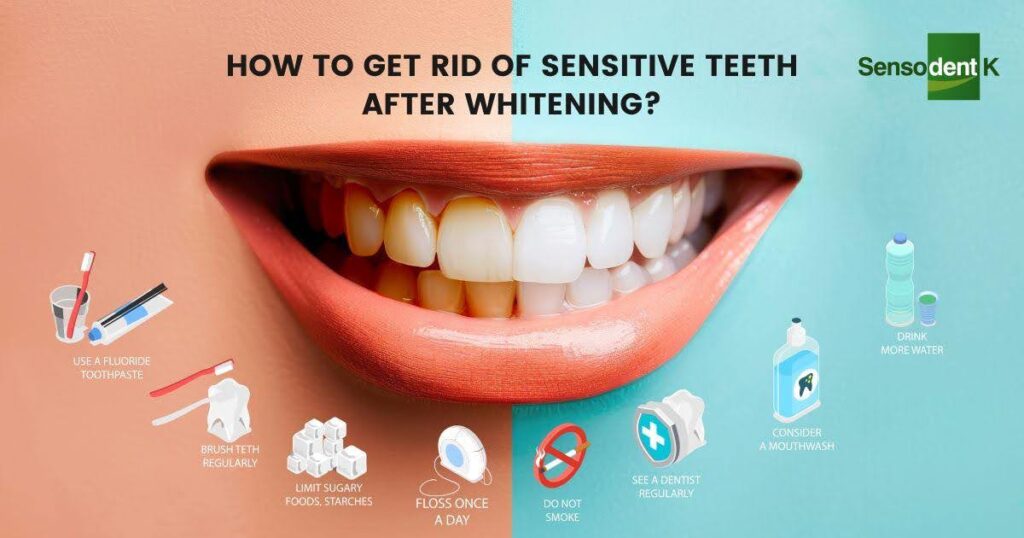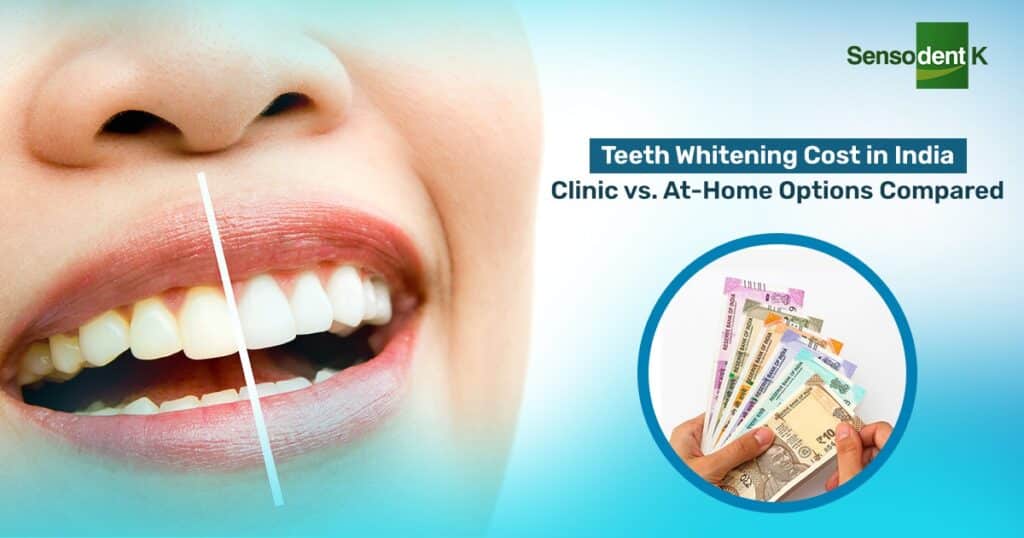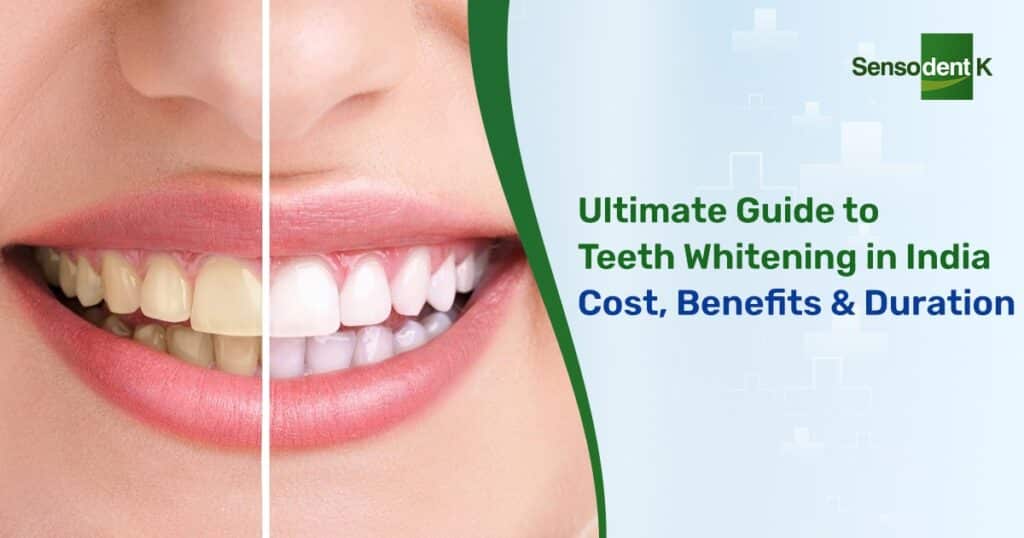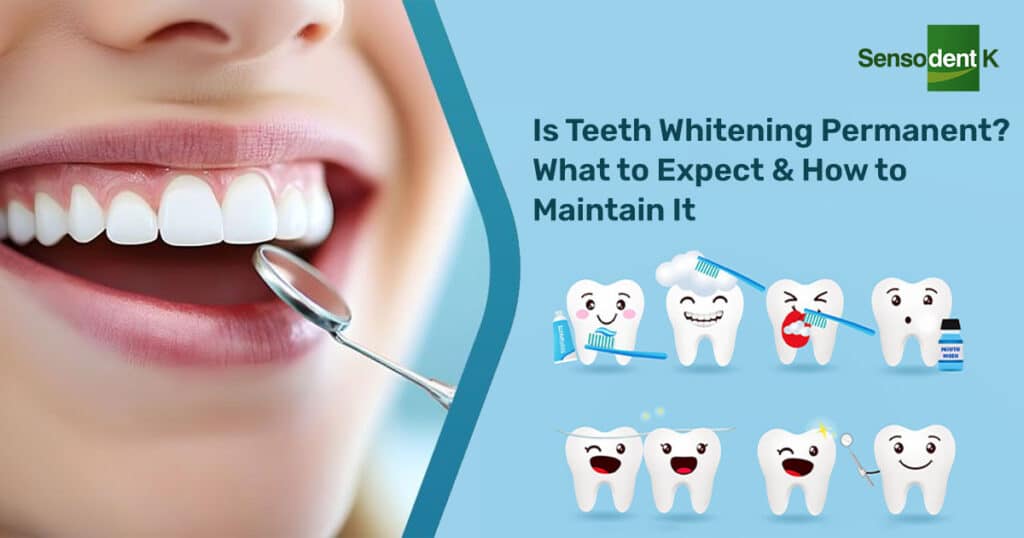H1 How to Get Rid of Sensitive Teeth After Whitening
H1 How to Get Rid of Sensitive Teeth After Whitening Teeth whitening is one of the most popular cosmetic dental treatments today. It instantly brightens your smile and boosts confidence. But for many people, the downside is tooth sensitivity that follows — sometimes mild and temporary, but other times sharp, uncomfortable, and persistent. If you’ve recently undergone a whitening procedure and now find yourself wincing when sipping coffee, biting into ice cream, or even breathing in cold air, you’re not alone. Post-whitening sensitivity is common, and the good news is that it’s usually manageable and temporary. In this guide, we’ll explore why sensitivity happens after whitening, what you can do to manage it, and how to protect your teeth for long-lasting comfort and results. Dealing with Severe Tooth Sensitivity After Teeth Whitening? Tooth sensitivity after whitening often feels like a sudden “zing” or sharp twinge of pain, especially when exposed to hot, cold, or sweet foods. For some, it might only last a few hours after treatment, while others may experience discomfort for days. The sensitivity isn’t usually a sign of permanent damage; rather, it’s your teeth reacting to the chemicals used during whitening. While this can be uncomfortable, there are effective strategies and products that can help soothe your teeth and restore normal comfort quickly. Before diving into solutions, it’s important to understand why this sensitivity happens in the first place. Related Blog: What Is Tooth Sensitivity? Causes, Symptoms, and Treatments Explained Causes of Sensitivity After Teeth Whitening Tooth whitening works by penetrating the enamel to break down stains in the dentin layer beneath. This process, however, can temporarily affect the way your teeth respond to external stimuli, leading to sensitivity. Here are the main causes behind post-whitening discomfort: 1. Enamel Permeability During whitening, hydrogen peroxide or carbamide peroxide agents penetrate through the enamel to reach the dentin. This temporarily increases enamel permeability, allowing external triggers (cold, hot, sweet) to reach the nerve endings more easily. 2. Dentin Exposure If enamel is already thin due to brushing habits, acid erosion, or age, the whitening process can make dentin more exposed. Since dentin contains microscopic tubules that connect directly to the tooth nerve, sensitivity spikes after whitening. 3. Nerve Irritation The bleaching agents in whitening treatments can cause temporary irritation of the pulp (the inner tissue of the tooth that houses nerves). This can lead to heightened nerve response, resulting in sharp pains when eating or drinking. 4. Dehydration of Teeth Whitening treatments sometimes dehydrate the tooth structure, especially when high-concentration bleaching agents are used. Dehydrated enamel becomes less protective and more likely to transmit sensations to the nerve. 5. Pre-existing Sensitivity People who already had mild sensitivity, gum recession, or cavities before whitening are more likely to experience severe discomfort afterwards. Whitening doesn’t cause these issues but can make them more noticeable. How to Get Rid of Teeth Sensitivity After Whitening (Quick Relief Tips) While sensitivity after whitening can feel frustrating, the good news is that it’s temporary and manageable with the right care. A few small adjustments in your routine can help soothe your teeth and make recovery much faster. Here are some quick and effective ways to relieve discomfort after whitening: 1. Switch to Sensitive Toothpaste Using a toothpaste specifically formulated for sensitive teeth can significantly reduce discomfort. These contain active ingredients like potassium nitrate or stannous fluoride, which help block nerve pathways and strengthen enamel over time. Consistent use offers both immediate and long-term relief. 2. Avoid Trigger Foods & Drinks Cold beverages, hot soups, acidic foods (like citrus and soda), and overly sweet treats are common triggers after whitening. Avoiding these for a few days gives your enamel time to rehydrate and your nerves a chance to calm down, preventing unnecessary discomfort. 3. Use a Soft-Bristle Brush Brushing too hard or using a stiff toothbrush can wear down enamel and aggravate sensitive areas. Switching to a soft-bristle toothbrush and brushing gently helps protect enamel and reduces irritation during the recovery phase. 4. Take Over-the-Counter Pain Medication For severe sensitivity, short-term use of OTC pain relievers like ibuprofen or acetaminophen can help manage discomfort. These medications reduce inflammation around the nerve endings, making daily activities more comfortable. Always follow dosage guidelines and consult your dentist if pain persists. 5. Apply Desensitizing Gel Dentist-recommended desensitizing gels or fluoride varnishes can provide targeted relief. These gels work by blocking exposed dentin tubules, which reduces the transmission of pain signals. Applying them directly to sensitive teeth gives fast, localized comfort. 6. Do a Saltwater Rinse A warm saltwater rinse is a simple home remedy that reduces irritation and promotes healing in the gums. It creates a natural barrier against sensitivity triggers and soothes minor inflammation, making it a gentle option for post-whitening care. Adjustments to Your Whitening Routine If whitening leaves your teeth feeling too sensitive, you don’t necessarily have to give it up. Making a few tweaks to your whitening routine can make the process gentler and still deliver bright results without the discomfort. Here are some smart adjustments to consider: Reduce the frequency of whitening sessions – Instead of daily use, try spacing treatments every few days to give your enamel time to recover. Lower the concentration of whitening agents – Ask your dentist about gentler formulas that are less likely to irritate tooth nerves. Shorten application time – Cutting back the duration of each whitening session helps limit enamel dehydration. Alternate with fluoride treatments – Using fluoride toothpaste or mouthwash between whitening sessions strengthens enamel and reduces sensitivity. Choose professional guidance – Dentists can customize trays and concentrations to minimize discomfort compared to one-size-fits-all over-the-counter kits. Stay hydrated – Drinking water frequently helps restore moisture balance in your enamel, reducing post-whitening irritation. Steps to Take Prior to Whitening Treatment Preventing sensitivity is often easier than treating it afterward. Preparing your teeth and gums before whitening can make a big difference in how comfortable your experience will be. 1. Get a Dental Check-Up First A professional








